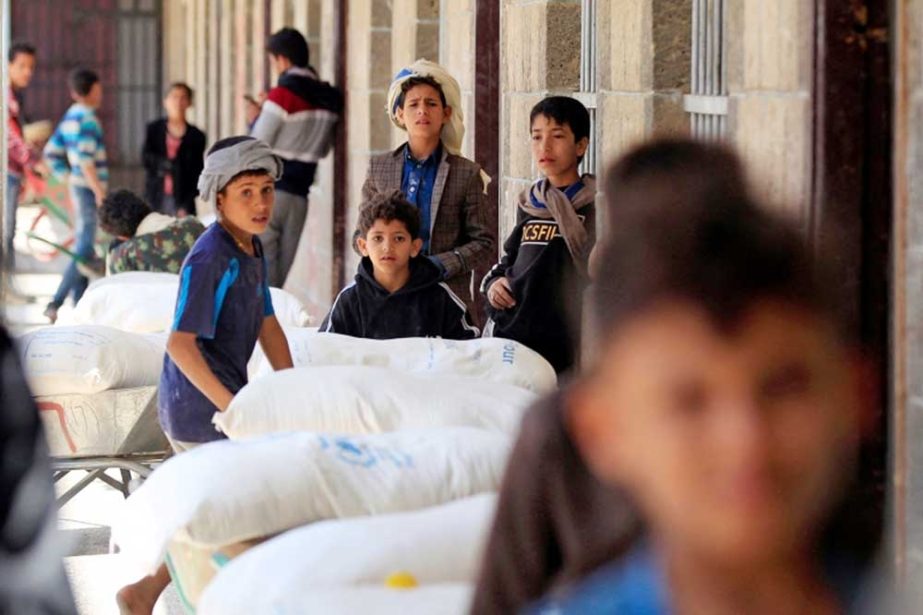
AL Jazeera :
The World Food Programme has said it has been “forced” to cut aid to Yemen due to a lack of funds and warned there will be a surge in hunger in the war-torn country in the coming months.
Nearly eight years of fighting between Saudi-backed government forces and Houthi rebels in Yemen has created what the United Nations has called the world’s worst humanitarian crisis. The violence is projected to kill 377,000 people by the end of the year, according to the UN Development Programme.
Meanwhile, four million people have been internally displaced during the fighting, with WFP targeting 11.1 million for food assistance in November of 2021. In September, the agency warned that 16 million Yemenis were “marching towards starvation”.
“From January, eight million will receive a reduced food ration, while five million at immediate risk of slipping into famine conditions will remain on a full ration,” the UN agency said in a statement on Wednesday.
According to the UN children’s fund (UNICEF), about 2.3 million children under the age of five currently suffer from acute malnutrition in Yemen, with 400,000 expected to suffer from life-threatening severe malnutrition in the coming months. “WFP food stocks in Yemen are running dangerously low,” WFP Regional Director Corinne Fleischer said in a statement.
“Every time we reduce the amount of food, we know that more people who are already hungry and food insecure will join the ranks of the millions who are starving. But desperate times call for desperate measures.”
WFP said that it needs $813m to continue to help the most vulnerable in Yemen through May and $1.97bn during 2022 to continue to deliver food assistance to families on the brink of famine.
Houthi rebels took control of the capital of Sanaa in 2014 as the government fled, prompting a Saudi Arabia-led coalition to intervene in 2015 in support of the government. Both sides have been accused of committing abuses in the fighting.
In recent months, the violence has centred around Marib, the government’s last major stronghold in the Houthi controlled north, which has displaced tens of thousands more residents.
On Monday, officials said aid flights had been halted following air attacks on Houthi targets at the international airport in the Yemeni capital, Sanaa.
Houthi rebels took control of the capital of Sanaa in 2014 as the government fled, prompting a Saudi Arabia-led coalition to intervene in 2015 in support of the government. Both sides have been accused of committing abuses in the fighting.
In recent months, the violence has centred around Marib, the government’s last major stronghold in the Houthi controlled north, which has displaced tens of thousands more residents.
On Monday, officials said aid flights had been halted following air attacks on Houthi targets at the international airport in the Yemeni capital, Sanaa.
Houthi rebels took control of the capital of Sanaa in 2014 as the government fled, prompting a Saudi Arabia-led coalition to intervene in 2015 in support of the government. Both sides have been accused of committing abuses in the fighting.
In recent months, the violence has centred around Marib, the government’s last major stronghold in the Houthi controlled north, which has displaced tens of thousands more residents.
On Monday, officials said aid flights had been halted following air attacks on Houthi targets at the international airport in the Yemeni capital, Sanaa.
Caption: The World Food Programme has said it has been forced to cut aid to Yemen due to lack of funds [Mohammed Huwais

